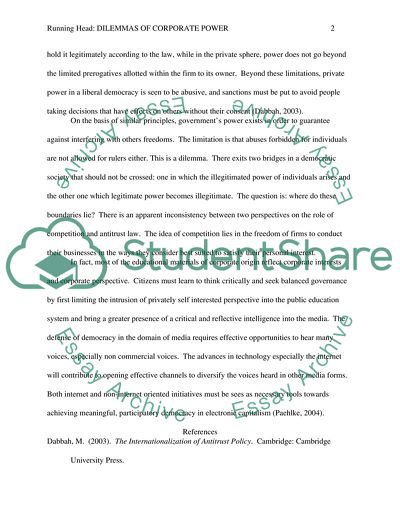Dilemmas of Corporate Power in a Democratic Society Essay. Retrieved from https://studentshare.org/culture/1597215-dilemmas-of-corporate-power-in-a-democratic-society
Dilemmas of Corporate Power in a Democratic Society Essay. https://studentshare.org/culture/1597215-dilemmas-of-corporate-power-in-a-democratic-society.


